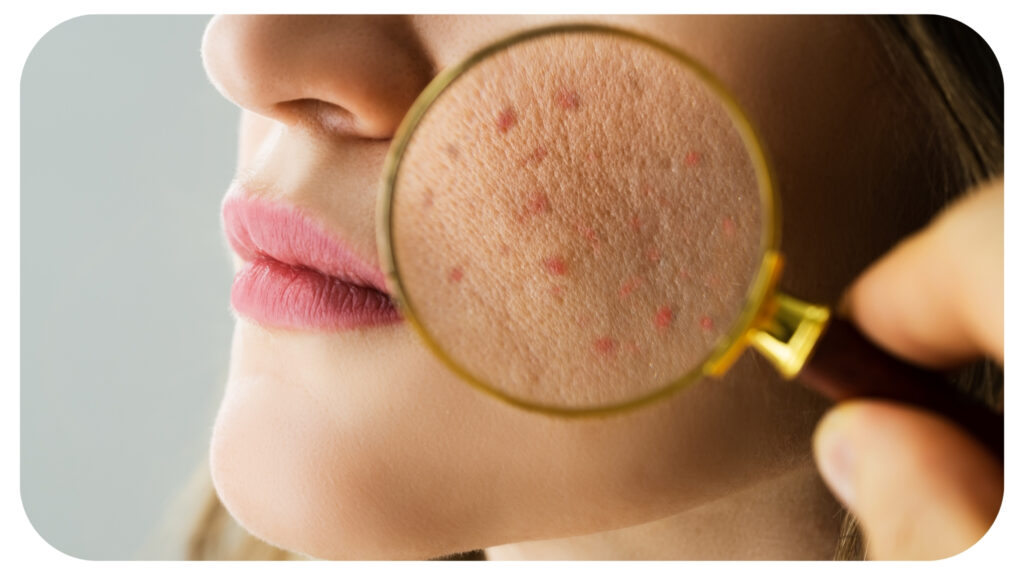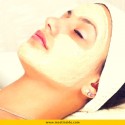Demystifying Acne: What’s Really Causing Those Breakouts?

Acne: it’s a common skin condition that affects millions of people worldwide, yet its causes can often feel elusive. From hormonal changes to dietary habits, numerous factors contribute to the development of acne.
In this comprehensive guide, we delve deep into the science behind acne breakouts to uncover the truth behind those pesky pimples.
Contents
ToggleUnderstanding Acne:
Before we dive into the causes of acne, it’s essential to understand what acne is and how it forms. Acne occurs when hair follicles become clogged with oil and dead skin cells, leading to the formation of pimples, blackheads, and whiteheads. The most common areas affected by acne include the face, neck, chest, and back.
Now, let’s explore the various factors that contribute to the development of acne:
1. Hormonal Changes
Hormonal fluctuations play a significant role in the development of acne, particularly during puberty, menstruation, pregnancy, and menopause. Increased levels of androgens, such as testosterone, stimulate the sebaceous glands to produce more oil, leading to clogged pores and acne breakouts.
2. Genetics
Genetics also play a crucial role in determining an individual’s susceptibility to acne. If your parents or siblings have a history of acne, you may be more prone to experiencing breakouts yourself. Certain genetic factors influence sebum production, skin inflammation, and the rate of skin cell turnover, all of which contribute to acne development.
3. Excessive Sebum Production
Sebum, an oily substance produced by the sebaceous glands, helps keep the skin lubricated and hydrated. However, excessive sebum production can lead to oily skin and clogged pores, making it easier for acne-causing bacteria to thrive. Factors such as genetics, hormonal imbalances, and certain medications can increase sebum production, exacerbating acne symptoms.
4. Bacteria
Propionibacterium acnes (P. acnes), a type of bacteria that naturally resides on the skin, plays a significant role in the development of acne. When pores become clogged with oil and dead skin cells, P. acnes multiply rapidly, leading to inflammation and the formation of inflammatory acne lesions, such as papules, pustules, and nodules.
5. Diet
While the relationship between diet and acne is still a topic of debate, certain dietary factors may exacerbate acne symptoms in some individuals. Foods high in refined carbohydrates, such as white bread, sugary snacks, and processed foods, may contribute to increased sebum production and inflammation, worsening acne breakouts. Additionally, dairy products and foods rich in saturated fats have been linked to acne development in some studies.
6. Stress
Chronic stress can trigger hormonal imbalances and inflammation in the body, both of which can exacerbate acne symptoms. When you’re stressed, your body releases cortisol, a stress hormone that can stimulate the sebaceous glands to produce more oil, leading to clogged pores and acne breakouts. Additionally, stress can weaken the immune system, making it harder for the body to fight off acne-causing bacteria.
7. Skincare and Makeup Products
Certain skincare and makeup products contain ingredients that can clog pores and exacerbate acne symptoms. Ingredients such as mineral oil, silicones, and certain types of alcohol can contribute to pore congestion and acne breakouts, especially for individuals with sensitive or acne-prone skin. It’s essential to choose non-comedogenic and oil-free products formulated specifically for acne-prone skin to minimize the risk of breakouts.
In Conclusion
Acne presents a multifaceted challenge, influenced by hormonal shifts, genetics, sebum production, bacteria, dietary choices, stress, and skincare practices. While genetic predispositions are immutable, cultivating a healthful lifestyle and skincare regimen can effectively mitigate acne symptoms.
By delving into the root causes of acne eruptions, individuals can proactively thwart and manage outbreaks, ultimately attaining a complexion of clarity and vitality. Whether integrating mild skincare formulations into daily rituals, embracing a nourishing dietary regimen, mastering stress management techniques, or exploring professional interventions like chemical peel treatments available in Salt Lake City, there exists a spectrum of avenues to combat acne and reinstate the skin’s innate equilibrium. It’s vital to acknowledge the uniqueness of each individual’s skin, necessitating a process of experimentation and refinement to identify the optimal strategy.
Recommended For You
9 Super Easy and Best Hairdos for Monsoon
Most Inside
Most Inside offers high-quality recommendations and valuable updates to enhance all aspects of your life, providing premium guidance and enriching experiences.




